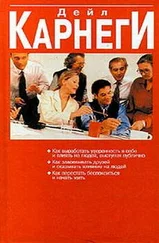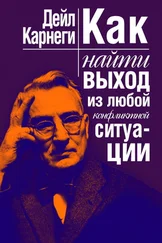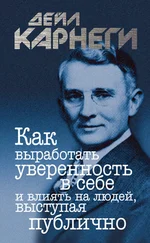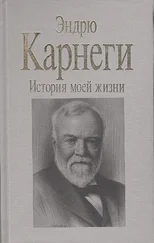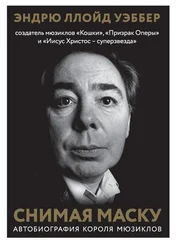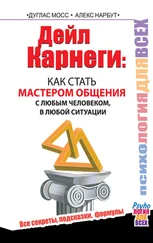Эндрю Карнеги - Autobiography of Andrew Carnegie
Здесь есть возможность читать онлайн «Эндрю Карнеги - Autobiography of Andrew Carnegie» — ознакомительный отрывок электронной книги совершенно бесплатно, а после прочтения отрывка купить полную версию. В некоторых случаях можно слушать аудио, скачать через торрент в формате fb2 и присутствует краткое содержание. Жанр: Биографии и Мемуары, foreign_antique, на английском языке. Описание произведения, (предисловие) а так же отзывы посетителей доступны на портале библиотеки ЛибКат.
- Название:Autobiography of Andrew Carnegie
- Автор:
- Жанр:
- Год:неизвестен
- ISBN:нет данных
- Рейтинг книги:3 / 5. Голосов: 1
-
Избранное:Добавить в избранное
- Отзывы:
-
Ваша оценка:
- 60
- 1
- 2
- 3
- 4
- 5
Autobiography of Andrew Carnegie: краткое содержание, описание и аннотация
Предлагаем к чтению аннотацию, описание, краткое содержание или предисловие (зависит от того, что написал сам автор книги «Autobiography of Andrew Carnegie»). Если вы не нашли необходимую информацию о книге — напишите в комментариях, мы постараемся отыскать её.
Autobiography of Andrew Carnegie — читать онлайн ознакомительный отрывок
Ниже представлен текст книги, разбитый по страницам. Система сохранения места последней прочитанной страницы, позволяет с удобством читать онлайн бесплатно книгу «Autobiography of Andrew Carnegie», без необходимости каждый раз заново искать на чём Вы остановились. Поставьте закладку, и сможете в любой момент перейти на страницу, на которой закончили чтение.
Интервал:
Закладка:
There were at that time not half a dozen "carriage" people in the town; and not for many years after was the attempt made to introduce livery, even for a coachman. As late as 1861, perhaps, the most notable financial event which had occurred in the annals of Pittsburgh was the retirement from business of Mr. Fahnestock with the enormous sum of $174,000, paid by his partners for his interest. How great a sum that seemed then and how trifling now!
My position as messenger boy soon made me acquainted with the few leading men of the city. The bar of Pittsburgh was distinguished. Judge Wilkins was at its head, and he and Judge MacCandless, Judge McClure, Charles Shaler and his partner, Edwin M. Stanton, afterwards the great War Secretary ("Lincoln's right-hand man") were all well known to me—the last-named especially, for he was good enough to take notice of me as a boy. In business circles among prominent men who still survive, Thomas M. Howe, James Park, C.G. Hussey, Benjamin F. Jones, William Thaw, John Chalfant, Colonel Herron were great men to whom the messenger boys looked as models, and not bad models either, as their lives proved. [Alas! all dead as I revise this paragraph in 1906, so steadily moves the solemn procession.]
My life as a telegraph messenger was in every respect a happy one, and it was while in this position that I laid the foundation of my closest friendships. The senior messenger boy being promoted, a new boy was needed, and he came in the person of David McCargo, afterwards the well-known superintendent of the Allegheny Valley Railway. He was made my companion and we had to deliver all the messages from the Eastern line, while two other boys delivered the messages from the West. The Eastern and Western Telegraph Companies were then separate, although occupying the same building. "Davy" and I became firm friends at once, one great bond being that he was Scotch; for, although "Davy" was born in America, his father was quite as much a Scotsman, even in speech, as my own father.
A short time after "Davy's" appointment a third boy was required, and this time I was asked if I could find a suitable one. This I had no difficulty in doing in my chum, Robert Pitcairn, later on my successor as superintendent and general agent at Pittsburgh of the Pennsylvania Railroad. Robert, like myself, was not only Scotch, but Scotch-born, so that "Davy," "Bob," and "Andy" became the three Scotch boys who delivered all the messages of the Eastern Telegraph Line in Pittsburgh, for the then magnificent salary of two and a half dollars per week. It was the duty of the boys to sweep the office each morning, and this we did in turn, so it will be seen that we all began at the bottom. Hon. H.W. Oliver, 13 13 Died 1904.
head of the great manufacturing firm of Oliver Brothers, and W.C. Morland, 14 14 Died 1889.
City Solicitor, subsequently joined the corps and started in the same fashion. It is not the rich man's son that the young struggler for advancement has to fear in the race of life, nor his nephew, nor his cousin. Let him look out for the "dark horse" in the boy who begins by sweeping out the office.
A messenger boy in those days had many pleasures. There were wholesale fruit stores, where a pocketful of apples was sometimes to be had for the prompt delivery of a message; bakers' and confectioners' shops, where sweet cakes were sometimes given to him. He met with very kind men, to whom he looked up with respect; they spoke a pleasant word and complimented him on his promptness, perhaps asked him to deliver a message on the way back to the office. I do not know a situation in which a boy is more apt to attract attention, which is all a really clever boy requires in order to rise. Wise men are always looking out for clever boys.
One great excitement of this life was the extra charge of ten cents which we were permitted to collect for messages delivered beyond a certain limit. These "dime messages," as might be expected, were anxiously watched, and quarrels arose among us as to the right of delivery. In some cases it was alleged boys had now and then taken a dime message out of turn. This was the only cause of serious trouble among us. By way of settlement I proposed that we should "pool" these messages and divide the cash equally at the end of each week. I was appointed treasurer. Peace and good-humor reigned ever afterwards. This pooling of extra earnings not being intended to create artificial prices was really coöperation. It was my first essay in financial organization.
The boys considered that they had a perfect right to spend these dividends, and the adjoining confectioner's shop had running accounts with most of them. The accounts were sometimes greatly overdrawn. The treasurer had accordingly to notify the confectioner, which he did in due form, that he would not be responsible for any debts contracted by the too hungry and greedy boys. Robert Pitcairn was the worst offender of all, apparently having not only one sweet tooth, but all his teeth of that character. He explained to me confidentially one day, when I scolded him, that he had live things in his stomach that gnawed his insides until fed upon sweets.
CHAPTER IV
COLONEL ANDERSON AND BOOKS
WITHall their pleasures the messenger boys were hard worked. Every other evening they were required to be on duty until the office closed, and on these nights it was seldom that I reached home before eleven o'clock. On the alternating nights we were relieved at six. This did not leave much time for self-improvement, nor did the wants of the family leave any money to spend on books. There came, however, like a blessing from above, a means by which the treasures of literature were unfolded to me.
Colonel James Anderson—I bless his name as I write—announced that he would open his library of four hundred volumes to boys, so that any young man could take out, each Saturday afternoon, a book which could be exchanged for another on the succeeding Saturday. My friend, Mr. Thomas N. Miller, reminded me recently that Colonel Anderson's books were first opened to "working boys," and the question arose whether messenger boys, clerks, and others, who did not work with their hands, were entitled to books. My first communication to the press was a note, written to the "Pittsburgh Dispatch," urging that we should not be excluded; that although we did not now work with our hands, some of us had done so, and that we were really working boys. 15 15 The note was signed "Working Boy." The librarian responded in the columns of the Dispatch defending the rules, which he claimed meant that "a Working Boy should have a trade." Carnegie's rejoinder was signed "A Working Boy, though without a Trade," and a day or two thereafter the Dispatch had an item on its editorial page which read: "Will 'a Working Boy without a Trade' please call at this office." (David Homer Bates in Century Magazine , July, 1908.)
Dear Colonel Anderson promptly enlarged the classification. So my first appearance as a public writer was a success.
My dear friend, Tom Miller, one of the inner circle, lived near Colonel Anderson and introduced me to him, and in this way the windows were opened in the walls of my dungeon through which the light of knowledge streamed in. Every day's toil and even the long hours of night service were lightened by the book which I carried about with me and read in the intervals that could be snatched from duty. And the future was made bright by the thought that when Saturday came a new volume could be obtained. In this way I became familiar with Macaulay's essays and his history, and with Bancroft's "History of the United States," which I studied with more care than any other book I had then read. Lamb's essays were my special delight, but I had at this time no knowledge of the great master of all, Shakespeare, beyond the selected pieces in the school books. My taste for him I acquired a little later at the old Pittsburgh Theater.
Читать дальшеИнтервал:
Закладка:
Похожие книги на «Autobiography of Andrew Carnegie»
Представляем Вашему вниманию похожие книги на «Autobiography of Andrew Carnegie» списком для выбора. Мы отобрали схожую по названию и смыслу литературу в надежде предоставить читателям больше вариантов отыскать новые, интересные, ещё непрочитанные произведения.
Обсуждение, отзывы о книге «Autobiography of Andrew Carnegie» и просто собственные мнения читателей. Оставьте ваши комментарии, напишите, что Вы думаете о произведении, его смысле или главных героях. Укажите что конкретно понравилось, а что нет, и почему Вы так считаете.

